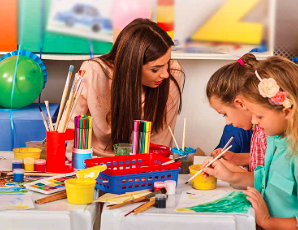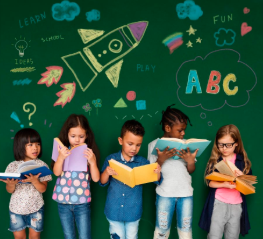In the early years of a child’s life, the way they learn sets the foundation for future academic and social success. Among the many approaches to early childhood education, play-based learning has gained attention for its ability to promote curiosity, creativity, and confidence in young learners. But what exactly is play-based learning, and why does it matter so much during these formative years?
Understanding Play-Based Learning
Play-based learning is an educational approach that allows children to explore, experiment, and engage with the world around them through play. It blends guided activities with child-initiated experiences, helping children develop essential skills while enjoying what they do naturally—playing.
This type of learning often takes place in environments where children have access to toys, materials, and experiences that encourage them to imagine, build, solve problems, and communicate. It supports multiple areas of development including language, motor skills, emotional regulation, and social interaction.
The Benefits of Learning Through Play
One of the greatest advantages of play-based learning is its ability to build a lifelong love of learning. Children become more active participants in their education when they are given the freedom to make choices, take initiative, and follow their interests.
For example, when a child pretends to run a store or cook in a play kitchen, they are practicing early math concepts, developing vocabulary, and learning how to work with others. These experiences not only build knowledge but also encourage confidence and resilience.
Additionally, play-based learning supports emotional well-being. It gives children opportunities to express feelings, solve conflicts, and understand different perspectives. These social and emotional skills are just as important as academic learning and prepare children for the classroom and beyond.
How Educators Use Play to Teach
Skilled early childhood educators understand how to guide play without taking it over. They observe what interests the children and introduce materials or questions that deepen the learning experience. A simple block-building activity can turn into a lesson on shapes, balance, teamwork, or storytelling—depending on how it’s facilitated.
Rather than rigid schedules or desk work, play-based programs often include flexible routines, outdoor exploration, hands-on materials, and creative arts. These elements help children learn in ways that feel natural and engaging to them.
Why It Matters for Future Learning
Research continues to show that children who experience rich play-based environments in early childhood are more likely to develop the cognitive, social, and language skills needed for school readiness. These children often enter kindergarten with a stronger sense of independence, better communication abilities, and a more positive view of learning.
Moreover, play-based learning aligns with how young brains are wired. During the early years, the brain grows rapidly and is especially responsive to experiences. Learning through play takes advantage of this critical window of development in a way that structured instruction alone often cannot.
Conclusion
Play is not just a way for young children to pass the time—it is a vital part of their growth. Through play-based learning, children gain skills that help them thrive both in and out of the classroom. By supporting playful, meaningful experiences in early education, families and educators give children the best possible start in life.














